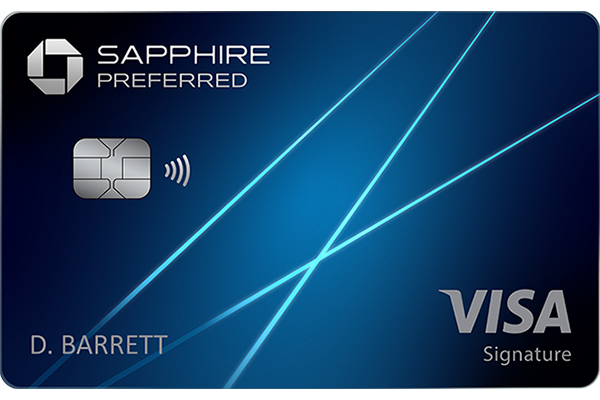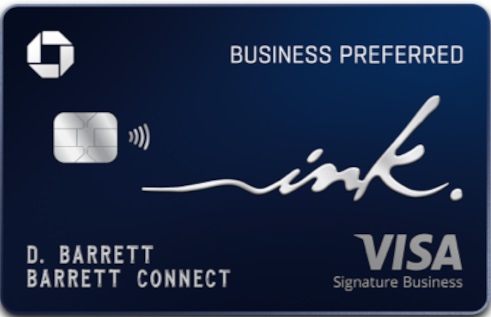This information is accurate at the time of publication and is subject to changes. Always verify the terms and conditions with your credit card issuer.
If you are new to travel card reviews, I encourage you to first check out my Beginners Guide To Credit Card Rewards.
Traveling can be unpredictable, but did you know that your credit card might offer protections that can save you money and reduce stress when things go wrong? Many travelers are unaware of these benefits, yet they can be a game-changer when plans don’t go as expected. Let’s dive into the key travel protections offered by credit cards and how you can take full advantage of them.
How to Use Credit Card Travel Protections
Travel protections offered by credit cards can be invaluable, but knowing how to use them is essential. Before diving into specific types of coverage, here’s a general guide on utilizing these benefits effectively:
- Pay for Travel with the Right Card: Protections usually apply only if you use the card to pay for your travel expenses. Some cards even provide coverage on award flights if you use the card to pay for taxes and fees.
- Save Documentation: Keep receipts, booking confirmations, and any correspondence related to cancellations, delays, or other issues.
- Review Policy Details: Check your card’s terms to understand coverage limits, exclusions, and requirements.
- Act Quickly: Notify your card issuer as soon as an issue arises and file claims promptly. Note: Some credit card issuers require you to first notify the carrier, such as the airline or cruise line to request compensation.
- Provide Supporting Evidence: Submit all required documentation, such as receipts and incident reports, to expedite claim processing.
Types of Credit Card Travel Protections
Now, let’s explore the specific protections available and some of their unique details.
1. Trip Cancellation and Interruption Insurance
If you’ve ever had to cancel a trip due to an illness, emergency, or severe weather, you know how expensive non-refundable bookings can be. Many credit cards offer trip cancellation and interruption insurance to reimburse prepaid, non-refundable travel expenses.
What It Covers:
- Cancellations due to illness, injury, or death (yourself, a family member, or a traveling companion).
- Severe weather or natural disasters that prevent travel.
- Jury duty or court subpoenas.
What It Does Not Cover:
- Pre-existing medical conditions (yourself or traveling companion).
- Cancellations due to personal change of plans or preferences.
- Failure to obtain passports or necessary visas in time before departure.
- Costs exceeding reimbursement limits specified by the card policy.
- Tickets or bookings not purchased with the card offering this benefit.
- Events like war, government travel bans, or pandemics (depending on the policy).
2. Trip Delay Reimbursement
Flight delays can turn a quick layover into an overnight headache. Trip delay insurance reimburses costs like meals, hotels, and transportation when your trip is delayed for a specified number of hours (e.g., 6 or 12 hours).
What It Covers:
- Reimbursement for meals and lodging during delays.
- Ground transportation costs incurred due to a delay.
- Coverage for essential items purchased during a delay.
- Missed connection expenses due to airline delays.
- Alternative travel arrangements when delays are significant.
What It Does Not Cover:
- Expenses incurred for delays less than the minimum required hours.
- Luxury expenses such as spa services or high-end dining.
- Delays caused by traveler error, such as missing a flight.
- Costs beyond card limits for coverage.
- Non-essential items purchased during the delay.
3. Baggage Delay and Lost Luggage Coverage

When your luggage doesn’t arrive on time—or worse, gets lost—credit card protections can help. Baggage delay insurance reimburses you for essentials like clothing and toiletries, while lost luggage coverage compensates for the value of your belongings.
What It Covers:
- Reimbursement for clothing, toiletries, and essentials during a baggage delay.
- Compensation for lost, stolen, or damaged luggage.
- Replacement costs for necessary items.
- Coverage for checked and carry-on bags.
- Costs of delivery for delayed baggage once located.
What It Does Not Cover:
- High-value items like jewelry or electronics exceeding card limits.
- Damage due to negligence or mishandling.
- Reimbursement for delays under the specified timeframe (e.g., under 6 hours).
- Losses not reported to the airline or relevant authority immediately.
- Coverage for items not deemed essential by the policy.
4. Travel Accident Insurance
Nobody wants to think about accidents while traveling, but this insurance can provide peace of mind. Travel accident insurance offers coverage in case of accidental death or dismemberment while on a common carrier, such as a plane, train, or bus.
What It Covers:
- Accidental death benefits for beneficiaries.
- Coverage for dismemberment or permanent injury during travel.
- Protection during flights, cruises, and other common carrier travel.
- Medical evacuation in the event of a covered accident.
- Lump-sum payments for severe injuries or fatalities.
What It Does Not Cover:
- Death or injuries caused by risky activities not covered under the policy (e.g., extreme sports).
- Losses occurring during personal travel deviations not paid for with the card.
- Accidents occurring while under the influence of drugs or alcohol.
- Injuries resulting from traveler negligence or unlawful activities.
- Coverage beyond specified policy limits.
5. Rental Car Insurance

Planning to rent a car on your trip? Many credit cards provide rental car insurance, often covering collision damage and theft. This can save you from buying pricey insurance from the rental company.
What It Covers:
- Damage or theft of the rental car.
- Primary coverage or secondary coverage (after your own auto insurance), depending on the card.
- Towing and loss-of-use fees charged by the rental company.
- Coverage during the rental period specified in the agreement.
- Reimbursement for eligible out-of-pocket expenses.
What It Does Not Cover:
- Liability for injuries to others or damage to other vehicles.
- Exotic or luxury vehicles are often excluded from coverage.
- Incidents occurring when not following the rental agreement.
- Personal belongings inside the car.
- Rentals exceeding the allowable duration (e.g., over 30 days).
How to Check Your Card’s Travel Protections
Not all credit cards offer the same protections, so it’s essential to check your benefits before traveling:
- Review Your Benefits Guide: Most issuers provide a detailed benefits guide online or by mail.
- Call Customer Service: Ask about specific travel protections and coverage limits.
- Look for Premium Travel Cards: Cards with annual fees often provide more comprehensive protections.
Best Credit Cards With Travel Protections
When choosing a credit card for travel protections, it’s important to select one that matches your travel habits and needs. Premium travel cards often offer the most robust coverage across various categories, but there are also several low annual fee options with valuable protections. Focus on the travel protections that are most relevant to your trips, and compare coverage limits, exclusions, and additional perks to ensure you’re getting the best value. Here are some of the top options available:
Premium Cards

This is a friend-referral offer.
| Trip Cancellation / Interruption Insurance: Up to $10,000 per person and $20,000 per trip. Trip Delay Reimbursement: Up to $500 per ticket for delays more than six hours. Baggage Delay Insurance: Up to $100 a day for 5 days. Lost Luggage Reimbursement: Up to $3,000 per passenger. Travel Accident Insurance: Up to $1,000,000. Rental Car Insurance: Primary and provides coverage up to $75,000 for theft and collision damage for rental cars in the U.S. and abroad. Annual Fee: $550. |

This is a friend-referral offer.
| Trip Cancellation / Interruption Insurance: Up to $2,000 per person. Trip Delay Reimbursement: Up to $500 per eligible passenger for delays more than six hours. Baggage Delay Insurance: Not covered. Lost Luggage Reimbursement: Up to $3,000 per passenger. Travel Accident Insurance: Up to $1,000,000. Rental Car Insurance: Primary and provides coverage up to $75,000 for theft and collision damage for rental cars in the U.S. and abroad. Annual Fee: $395. |
Low Annual Fee Cards

This is a friend-referral offer.
| Trip Cancellation / Interruption Insurance: Up to $10,000 per person and $20,000 per trip. Trip Delay Reimbursement: Up to $500 per ticket for delays more than twelve hours. Baggage Delay Insurance: Up to $100 a day for 5 days. Lost Luggage Reimbursement: Up to $3,000 per passenger. Travel Accident Insurance: Up to $500,000. Rental Car Insurance: Primary and provides coverage up up to the actual cash value of the vehicle, but coverage excludes certain cars, such as high value and exotic vehicles.. Annual Fee: $95. |

This is a friend-referral offer.
| Trip Cancellation / Interruption Insurance: Up to $5,000 per person and $10,000 per trip. Trip Delay Reimbursement: Up to $500 per ticket for delays more than 12 hours. Baggage Delay Insurance: Up to $100 a day for 5 days. Lost Luggage Reimbursement: Up to $3,000 per passenger. Travel Accident Insurance: Up to $500,000. Rental Car Insurance: Primary and provides coverage up up to the actual cash value of the vehicle when renting for business purposes, but coverage excludes certain cars, such as high value and exotic vehicles.. Annual Fee: $95. |
My Card Recommendations
The Chase Sapphire Reserve offers some of the highest trip protection coverage limits available, but its $550 annual fee may not be worth it for travel protection benefits alone. On the other hand, the Sapphire Preferred and Ink Business Preferred cards provide excellent travel protections at a much lower annual fee of $95, making them more budget-friendly options.
Personally, I use the Ink Business Preferred card for booking flights, as it earns 3x Ultimate Rewards points on travel. For rental cars, I prefer the Venture X card, which earns 2x Venture Miles on all purchases.
FAQ
Q: What should I do before filing a travel protection claim? Before submitting a claim to the credit card issuer, you must first notify the carrier, such as the airline or cruise line that interrupted your trip.
Q: Do all credit cards offer travel protections? No, not all cards provide travel protections. Premium travel cards, such as those with annual fees, are more likely to include these benefits.
Q: Can I use my travel protections if I book through a third-party site? It depends on your card’s policy. Some protections apply only if you book directly with airlines, hotels, or rental agencies.
Q: Do travel protections cover award travel? Often, yes. Many cards provide coverage on award travel if you use the card to pay for taxes and fees associated with the booking.
Q: How long do I have to file a claim? Filing deadlines vary by card issuer. It’s best to file your claim as soon as possible and check the terms of your card’s benefits.
Q: Are family members covered under my card’s travel protections? Often, yes. Many cards extend coverage to immediate family members traveling with you, even if the ticket was purchased on your card.
Key Takeaways
- Many credit cards offer essential travel protections, such as trip cancellation insurance, trip delay insurance, and baggage coverage.
- Travel cards with annual fees often provide more comprehensive benefits, including rental car insurance and travel accident insurance.
- To maximize these benefits, always use a card with the right protections for your needs and keep all documentation related to your travel.
Stay Updated on the Best Credit Card Travel Tips!
Don’t miss out on expert advice to help you travel smarter and save more. Subscribe to the newsletter for the latest tips, best credit card offers, and strategies to maximize your rewards. Whether you’re a seasoned traveler or just starting, we’ve got you covered!
Phillip founded Hacking Your Finances after reaching financial independence in 2024 and leaving his corporate career to follow his passion for helping others optimize their finances. Combining his love for personal finance and travel hacking with years of professional expertise, he provides practical strategies to help readers maximize credit card rewards and achieve their financial goals.


